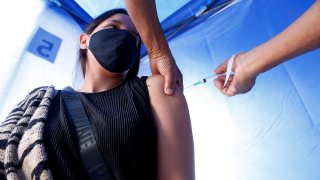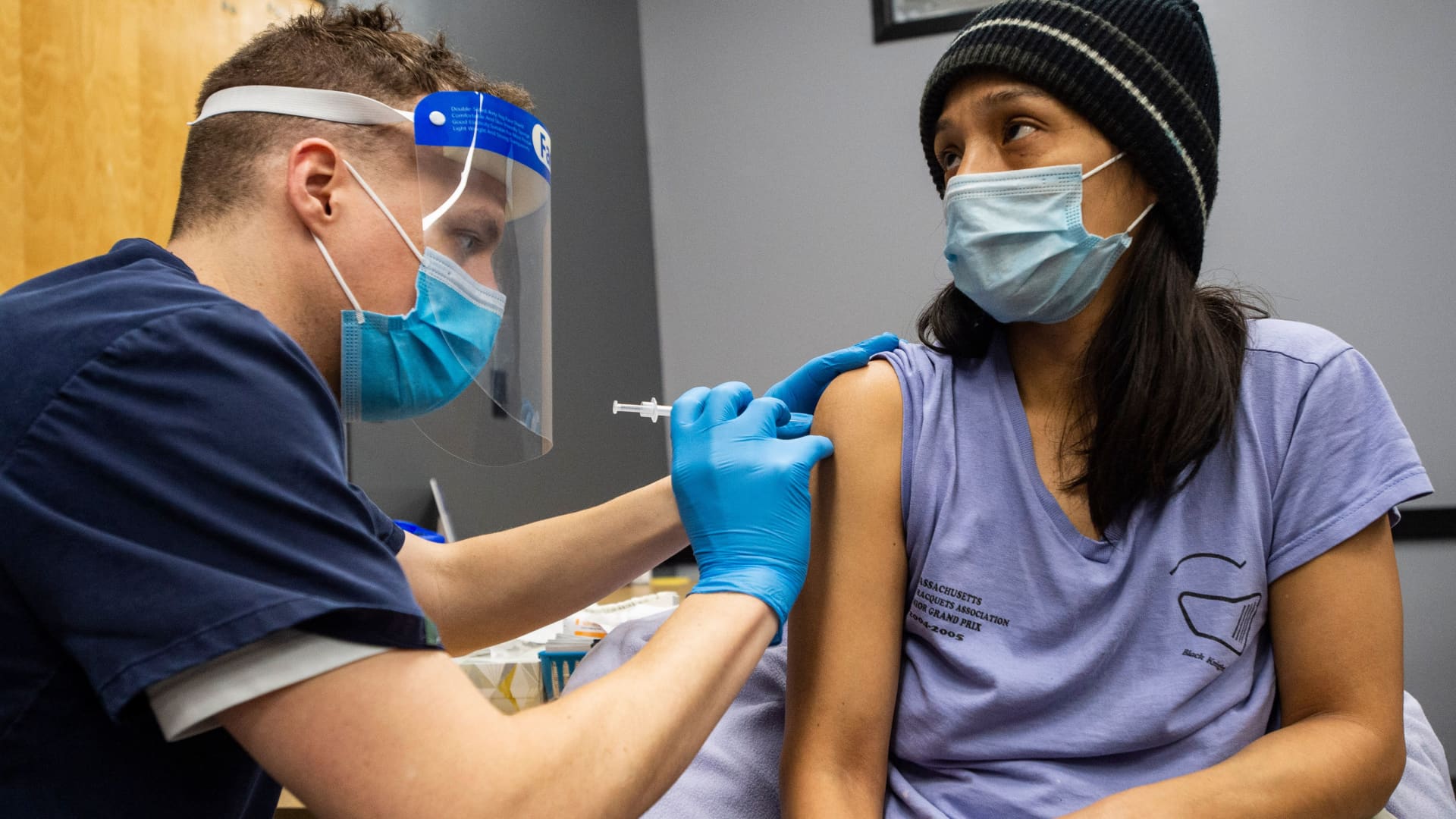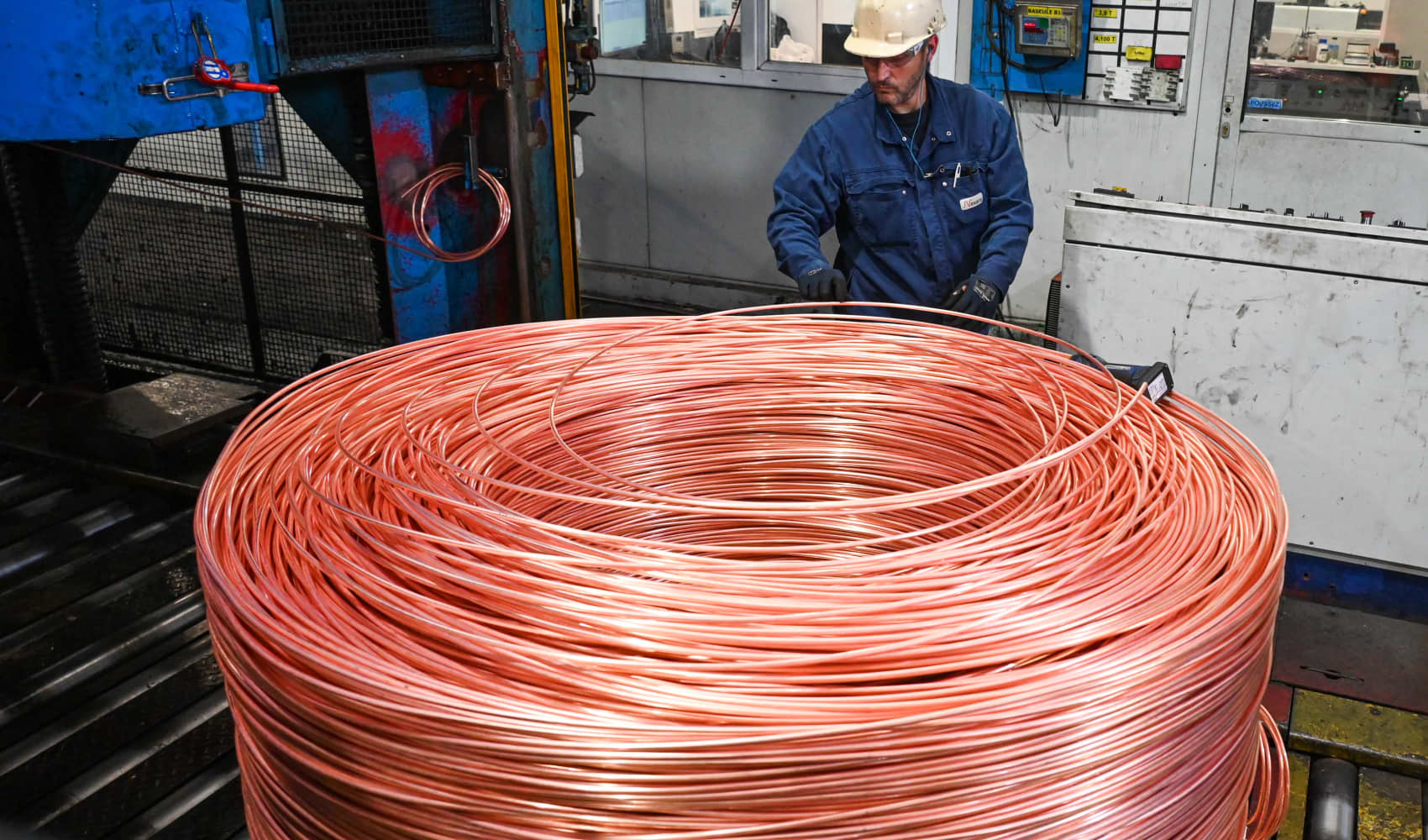
- The Biden administration announced Wednesday that it supports waiving intellectual property protections for Covid-19 vaccines.
- Such a waiver could remove obstacles to ramping up the production of vaccines in developing countries.
- The move comes as coronavirus infections surge to their highest levels in countries that have struggled to procure or distribute vaccines.
WASHINGTON — The Biden administration announced Wednesday that it supports waiving intellectual property protections for Covid-19 vaccines, as countries struggle to manufacture the life-saving doses.
"This is a global health crisis, and the extraordinary circumstances of the COVID-19 pandemic call for extraordinary measures. The Administration believes strongly in intellectual property protections, but in service of ending this pandemic, supports the waiver of those protections for COVID-19 vaccines," United States Trade Representative Katherine Tai wrote in a statement.
Get Boston local news, weather forecasts, lifestyle and entertainment stories to your inbox. Sign up for NBC Boston’s newsletters.
"As our vaccine supply for the American people is secured, the Administration will continue to ramp up its efforts — working with the private sector and all possible partners — to expand vaccine manufacturing and distribution. It will also work to increase the raw materials needed to produce those vaccines," the statement added.
The World Health Organization's director-general, Tedros Adhanom Ghebreyesus, praised the U.S. decision as a "monumental moment in the fight against Covid-19" that reflects the "moral leadership" of the White House in the fight to end the pandemic.
Stocks of major pharmaceutical companies that have produced vaccines, including Moderna, BioNTech and Pfizer, dropped sharply after news of the potential waivers first broke. Pfizer ended its trading day flat, while Moderna lost 6.1%; Johnson & Johnson shed a modest 0.4%.
The Pharmaceutical Research and Manufacturers of America expressed pointed opposition to the Biden administration's support for waiving IP protections. The trade group's members include vaccine makers such as AstraZeneca, Pfizer and Johnson & Johnson.
Money Report
"In the midst of a deadly pandemic, the Biden Administration has taken an unprecedented step that will undermine our global response to the pandemic and compromise safety," said Stephen J. Ubi, the group's president and CEO. "This decision will sow confusion between public and private partners, further weaken already strained supply chains and foster the proliferation of counterfeit vaccines. "
World Trade Organization leaders reportedly urged member nations this week to quickly hash out the details of an agreement to temporarily ease the rules protecting intellectual property behind coronavirus vaccines. The waiver, proposed by South Africa and India, could remove obstacles to ramping up the production of vaccines in developing countries.
An administration official with knowledge of Tai's decision cautioned that the WTO's discussions over waivers could take time and, since the body's rulings are based on consensus, will require approval from all 164 members.
The official, who spoke on the condition of anonymity, added that Tai held at least two dozen meetings and calls with various industry stakeholders, including the major vaccine manufacturers. The person added that Tai plans to advocate for friendly cooperation between global firms to ease supply-chain bottlenecks.
President Joe Biden at the White House on Wednesday affirmed that the White House would back the World Trade Organization's IP waiver proposal. "Yes, I'm going to talk about that later today. Yes," Biden said shortly before Tai's statement was released.
The Biden administration's move comes as coronavirus infections surge to their highest levels in countries that have struggled to procure or distribute vaccines, highlighting a contrast with other nations, including the U.S., Canada and the U.K.

In recent weeks, India has grappled with a staggering rise in new coronavirus infections. Over the weekend, India reported 400,000 daily cases, bringing the nation's cumulative total to 20,665,148 cases, according to figures compiled by Johns Hopkins University. The spike may have been triggered by a highly contagious Covid variant, known as B.1.617, which was first identified in India.
"The Biden Administration understands that a pandemic doesn't respect boundaries and that what's happening in India has global public health implications," wrote Dewardic McNeal, an Obama-era policy analyst at the Defense Department.
"If it spread to Africa or Latin America to the levels ravaging India that many countries on those continents would collapse," he added. "So this move is just good global public health policy."
The variant has since been identified in other countries, including the United States.
In April, Indian Prime Minister Narendra Modi discussed lifting the patent protections of coronavirus vaccines with Biden, according to a readout of their call. The relaxation would grant governments quicker and more affordable access to the lifesaving doses.
Last week, the Biden administration announced that it will immediately make raw materials needed for India's coronavirus vaccine production available.
Critics have argued that patents on vaccines and other protections are not the central obstacle to producing more vaccines for the nations that need them most. Some also suggest such agreements could harm companies' incentives to innovate during future pandemics.
"This is a huge misstep by the Biden Administration that will do nothing to increase vaccine distribution and will endorse China's ability to piggyback on U.S. innovation to further its vaccine diplomacy aims," Clete Willems, a former attorney at the Office of the U.S. Trade Representative, said of the decision.
"A solution more in line with the Administration's stated objectives of improving U.S. competitiveness and keeping jobs in America would be to produce and export vaccines from the United States," said Willems, who worked under both the Obama and Trump administrations.
A Washington Post editorial this week said the goal of creating a "people's vaccine" to defeat Covid is "more slogan than solution."
McNeal acknowledged the concerns voiced by Willems, but noted that Tai's decision to make its vaccines broadly available may offer the Biden administration a backdoor way to improve American geopolitical standing abroad.
"There is no question that vaccine diplomacy has become a major part of the geopolitical competition between the U.S. and China, and to some extent Russia and its Sputnik vaccine," McNeal wrote. "This move it will severely undercut the Chinese efforts to spread its vaccine (and influence) globally."
"If the U.S. doesn't move on something like this with India in particular, it begs the question for many U.S. allies and partners 'what's in it for us?' to move closer to the U.S. versus China if we can't even get assistance in our time of need," he added.
— CNBC's Kevin Breuninger and Tom Franck reported from New York.






